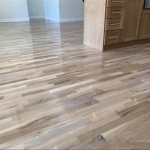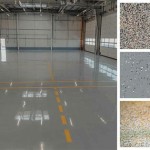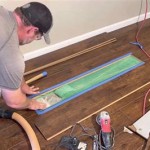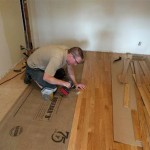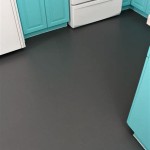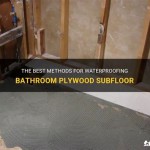Vinyl Flooring Planks – A Stylish, Durable Choice For Your Home
Vinyl flooring planks have become increasingly popular in recent years as a stylish and durable flooring option for both residential and commercial properties. They are available in a wide range of colors, styles, and finishes, making them a versatile choice for any décor. In this article, we will dive into the essential aspects of vinyl flooring planks, exploring their benefits, types, installation process, and maintenance requirements.
Benefits of Vinyl Flooring Planks
The benefits of vinyl flooring planks are numerous. They are:
Waterproof and Moisture-Resistant:
Vinyl flooring planks are 100% waterproof, making them an ideal choice for areas prone to moisture, such as kitchens, bathrooms, and basements.Durable and Scratch-Resistant:
Vinyl flooring planks are highly durable and can withstand heavy foot traffic, making them suitable for both residential and commercial applications.Easy to Clean and Maintain:
Vinyl flooring planks are easy to clean and maintain. Regular sweeping or vacuuming is sufficient, and occasional mopping with a mild detergent will keep them looking their best.Comfortable and Quiet:
Vinyl flooring planks provide a comfortable walking surface and reduce noise levels compared to hard flooring materials such as tile or wood.Stylish and Versatile:
Vinyl flooring planks come in a wide range of colors, styles, and finishes, making them a versatile choice for any décor.
Types of Vinyl Flooring Planks
There are two main types of vinyl flooring planks:
Luxury Vinyl Tile (LVT):
LVT planks are made of multiple layers of vinyl, including a core layer, a design layer, and a protective top layer. They are known for their realistic wood or stone look and feel.Waterproof Vinyl Plank (WVP):
WVP planks are similar to LVT planks but have an added waterproof backing, making them ideal for areas prone to moisture.
Installation of Vinyl Flooring Planks
Vinyl flooring planks can be installed using two methods:
Glue-Down:
Glue-down vinyl flooring planks are installed using an adhesive that is applied to the subfloor. This method provides a strong and durable bond.Floating:
Floating vinyl flooring planks are installed by interlocking the planks together without the use of glue. This method is easier and faster than glue-down installation.
Maintenance of Vinyl Flooring Planks
Maintaining vinyl flooring planks is relatively easy. Regular cleaning with a broom, vacuum, or damp mop is sufficient. Avoid using harsh chemicals or abrasive cleaners, as these can damage the finish. If spills occur, clean them up immediately to prevent staining.
In conclusion, vinyl flooring planks offer a stylish, durable, and easy-to-maintain flooring solution for any home or commercial space. With their wide range of colors, styles, and finishes, vinyl flooring planks can complement any décor and provide years of enjoyment.

Luxury Wood Vinyl Plank Highland Homes Flooring Options

Diy Vinyl Flooring For Your Home In Singapore
Everything You Need To Know About Vinyl Flooring Tarkett

Vinyl Flooring 101 What Is And Should You Get It Alpod Eu

Vinyl Plank Flooring For Screened Porch Everything You Need To Know Floorings

How To Choose The Right Vinyl Plank Deerfoot Carpet Flooring

Everything You Need To Know About Luxury Vinyl Planks Residential

Keep Your Home Updated With The Latest 2024 Vinyl Flooring Trends Homelane Blog

Choosing Vinyl Flooring For Your Living Room Tarkett

Vinyl Vs Laminate Flooring Pros Cons And Differences 2024 Forbes Home
See Also
